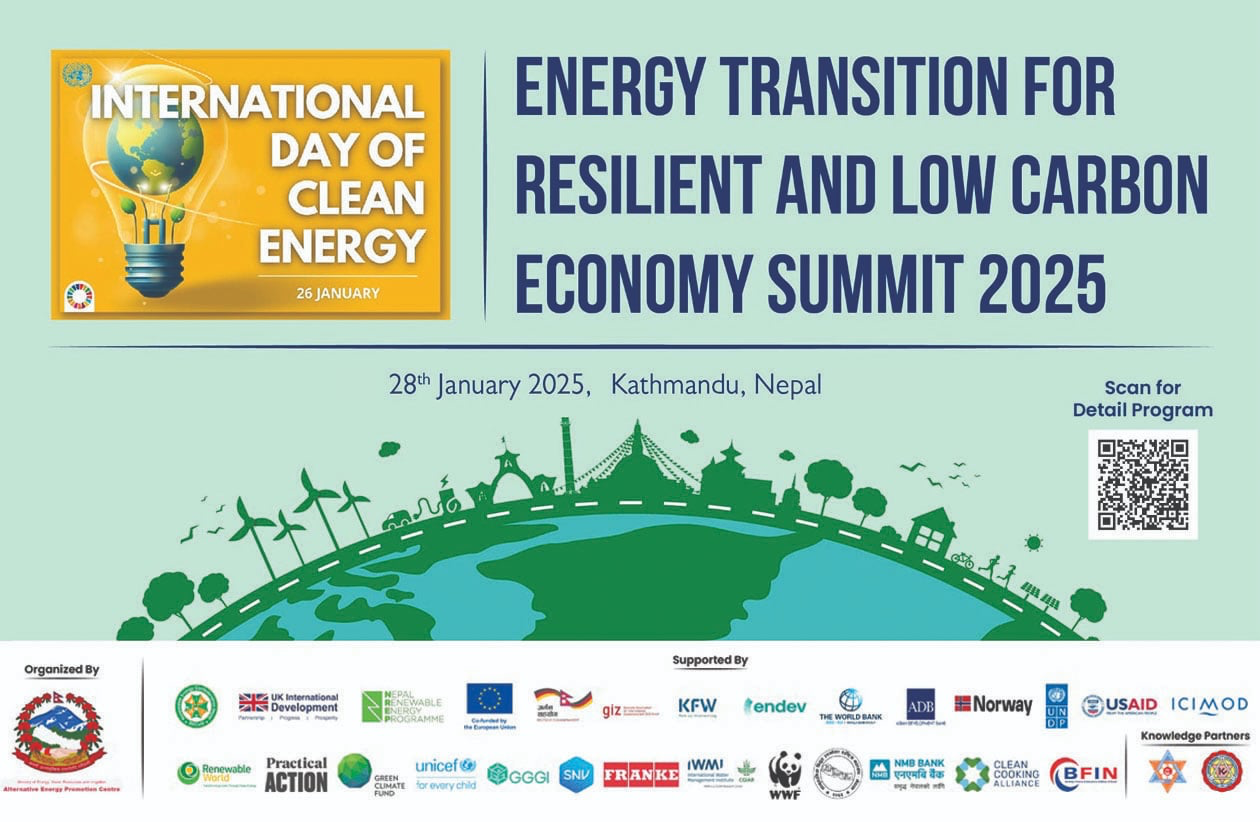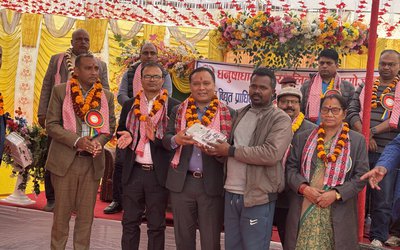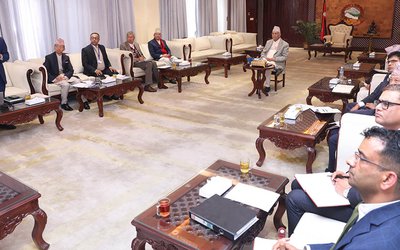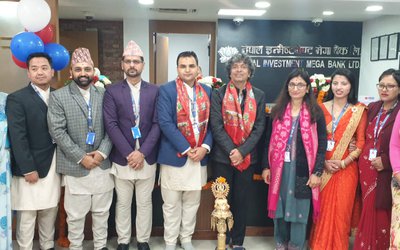
KATHMANDU- The United Nations World Food Programme (WFP) todayjoins its sister agencies in calling for global action to improvefood systems so that people can better withstand shocks and crises like the COVID-19 pandemic andcombat alarming surges in hunger seen around the globe.
In Nepal, the socio-economic effects of the pandemic – particularly loss of livelihoods and incomes –are reducing communities’ ability to withstand potential shocks such as natural disasters.Incidents of floods and landslides have further exacerbated food insecurity in parts of the country,according toWFPreports.
The need for concerted action to improve agricultural production while enhancing global supply chains is captured in this year’s World Food Day theme: “Grow, Nourish, Sustain, Together”. The three Rome-based agencies - WFP, the Food and Agriculture Organisation of the UN (FAO) and the International Fund for Agricultural Development (IFAD) – are now renewing their call for sustainable investment in food systems to achieve healthy diets for all. Without massive improvements in the food supply chain, developing countries such as Nepal are set to become increasingly vulnerable to financial volatility and climate shocks.
In recent months, with the COVID pandemic, food insecurity has deteriorated in Nepal, and it can be further exacerbated by a lack of economic, physical and social access to nutritious and affordable food.In these tumultuous times, smallholder farmers in Nepal need support to sustainably grow, store, and transport produce to markets to improve their livelihoods. When food makes its way from the farm to people’s plates in a way that is effective and fair, everyone benefits.
“Efficient and effective food supply chains are essential to lowering the risks of food insecurity, malnutrition, food price fluctuations and can simultaneously create jobs,” said WFP Representative and Country Director Pippa Bradford. “By empowering producers and retailers in the food systems economy, we help build food supply chains that are resilient to shocks, environmentally sustainable and that can ensure nutrition for all,“she added.
As the largest humanitarian organization in the world fighting hunger, WFP has unparalleled experience in buying and distributing food. In Nepal, WFP is strengthening government capacity to procure food locally from smallholder farmers, and supporting for smallholders agricultural market linkage through provide smallholders training in the creation of productive assets, post-harvest management and localized and stable agricultural market storage and supporting their access to market, in addition to interventions for climate change adaptation to food security. The aim is to build dynamic food systems, which contribute to profitable agribusiness, commercialized community-based agricultural growth and a strengthened national economy.

WFP has been working in Nepal since 1963, assisting the Government to develop greater food security among vulnerable communities and build resilience to disasters in support of the country’s goal to achieve Zero Hunger, and graduate from a developing to a lower-middle-income country by 2023. WFP’s work in Nepal primarily targets the most food insecure, those in the hard-to-reach districts of the Mid- and Far-Western Hills and Mountains.
- NEA Declares Dhanushadham A Electricity Theft-Free Municipality
- Feb 10, 2025
- Weather Forecast: Partly To Generally Cloudy In Sudur Paschim, Karnali and Gandaki Provinces
- Feb 10, 2025
- Nepal Investment Mega Bank Has Shifted Khushibu Branch
- Feb 09, 2025
- Weather Forecast: Partly To Generally Cloudy In Hilly Regions of Karnali, Gandaki And Koshi
- Feb 09, 2025
- Ambassador Oli Paid A Courtesy Call On The Prime Minister of Cambodia
- Feb 08, 2025
















